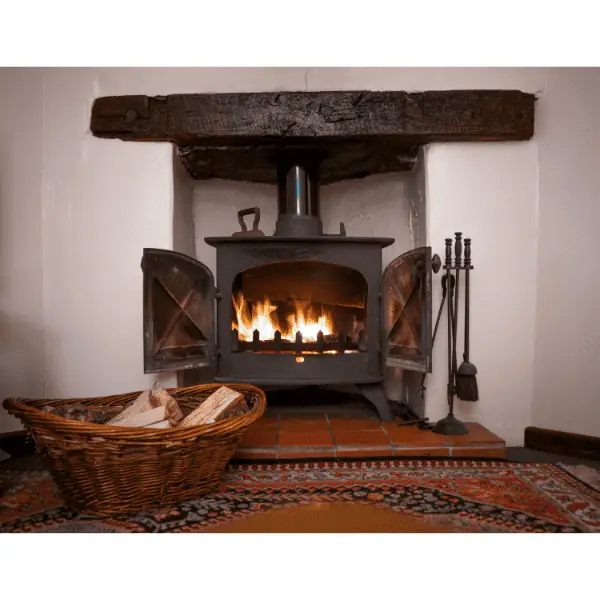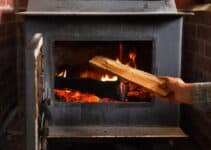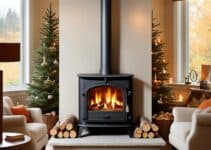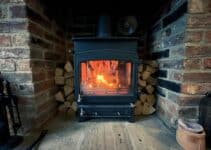There’s plenty of misunderstanding about the environmental impact and energy efficiency of log burners.
As such, you might be asking, does a log burner improve EPC? A log burner can improve your home’s EPC rating, provided it’s an efficient stove and it uses the best fuel available. Bear in mind, it’s not a given that installing a log burner will improve your EPC, as it can depend on numerous factors.
To understand this in more detail, let’s look at what we mean by an EPC rating and how a lighting a log burner can help.
What is EPC?
EPC stands for Energy Performance Certificate. It’s a document that rates a home’s energy efficiency and, by extension, how much you can expect to spend on energy bills. EPC ratings are mainly used for buying, selling and renting houses.
You can use the government website to search for a property’s EPC score. It determines a building’s energy efficiency by calculating:
· The amount of energy used in the property per metre squared
· The level of CO2 emissions produced in tonnes per year
An EPC is given by an accredited energy assessor and lasts for 10 years. When selling or renting a property, estate agents will check whether a building has a valid certificate, but it’s the owner’s job to get one if this isn’t the case.
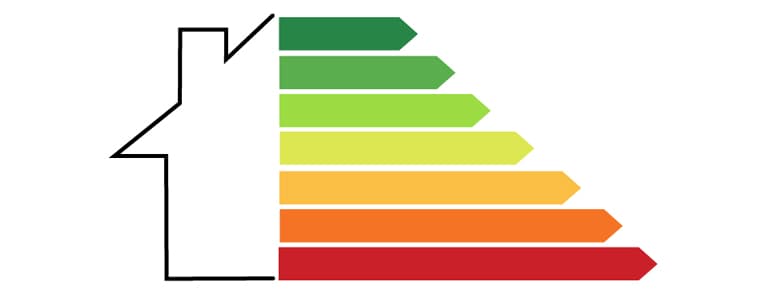
Rating System
You’ve probably seen an EPC rating system before. It scores a property on a scale of A to G, with A being the highest. Rental properties must score at least an E to be legally rented. If it scores an F or G, the owner is expected to carry out renovations to improve it.
Do Log Burners Help EPC?
Log burners can improve a home’s EPC rating. This might seem counter-intuitive because wood burners are often seen as uneconomical, but the opposite is actually true when you think about their fuel-to-heat ratio.
Let’s look at this in more detail to understand why.
Fuel Source
Wood is a carbon neutral fuel source. This is because trees absorb carbon dioxide while they grow, which is then released into the atmosphere when you burn it.
So, unlike fossil fuels, you’re not “producing” any new CO2 but are instead re-releasing it into the atmosphere.
On the other hand, the average British gas boiler produces around 2.2 tonnes of CO2 emissions a year. As this comes from fossil fuels, it’s considered to be “new” carbon dioxide.
This logic is true for any wood-based fuel source, whether it’s logs from a forest or wood pellets from a shop. As long as it’s made of wood, you’re burning a carbon neutral fuel.
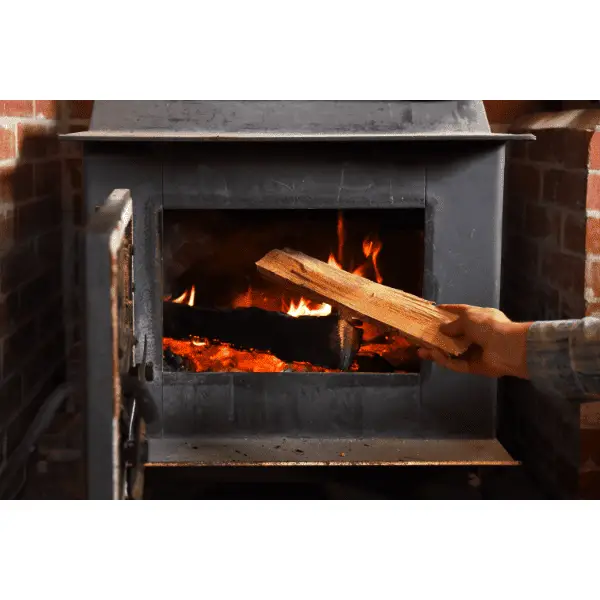
Energy Efficiency – Log Burner EPC rating
A standard log burner is around 80% efficient. Sure, this can vary depending on the model, but it equates to 80% of your fuel source becoming heat.
On the other hand, a gas boiler can range from 70-90% efficiency.
Pellet stoves are typically 70-83% efficient, but with the right additions (such as a heat extractor and exchanger), you can push this up to 91%.
So, gas boilers win on this metric. But when you factor in the fuel source, it seems like an obvious choice in favour of log burners.
Heat-to-Space Ratio
Perhaps the most important factor when considering the efficiency of log burners is how much space they heat.
Granted, a typical stove will only heat the room it’s in, but you can get some amazing heat output if you burn its fuel properly.
Then, you must balance this against the impact it’ll have on your overall energy consumption, which is important for EPC ratings.
For example, burning a log stove in your living room could save you from running the heating in your home – or at least setting in on a lower temperature.
Doing so reduces the amount of energy used (one EPC metric) and the amount of CO2 produced (the other EPC metric). Therefore, you should find that installing a log burner has a significant impact on your home’s EPC rating because you’re essentially getting carbon free heat.
Wood Burning Stove Efficiency
Hopefully, this article has explained why log burners are beneficial for your home’s EPC rating. But if you want a specific answer of how your home will be affected, it might be worth speaking to an energy assessor.
You can use the government link above to find one in your area and book a consultation. They should then be able to explain whether installing a log burner is a viable solution to improving your home’s EPC rating.
